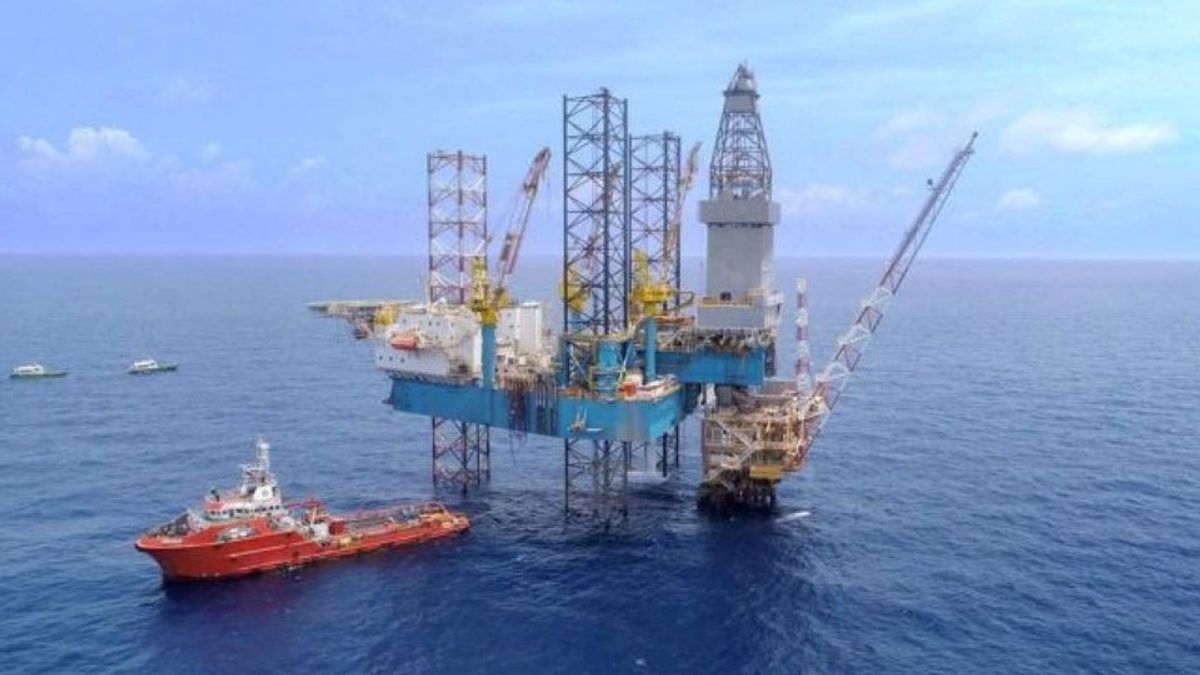JAKARTA - The Ministry of Energy and Mineral Resources (ESDM) decided to increase the price of Indonesian crude oil (Indonesian Crude Price/ICP) by 113.5 US dollars per barrel in March 2022. The price increased 18.6 percent from 95.72 US dollars. per barrel in February 2022.
Energy Watch Executive Director Mamit Setiawan also responded to the government's decision to increase crude oil prices. Mamit reminded the public about some of the impacts that might arise after the government decided to increase the ICP price.
"The first, of course, is that state revenues in terms of Non-Tax State Revenue (PNBP) will increase from oil and gas and oil and gas income tax," said Mamit to VOI, Monday, April 11.
He explained, if using a linear sensitivity calculation with the assumption of ceteris paribus, that is, when other variables do not change, every 1 US dollar increase in ICP will have an impact on state revenues of IDR 3 trillion, consisting of tax revenues of IDR 0.8 trillion and PNBP of IDR 2.2 trillion.
"On the other hand, state spending is IDR 2.6 trillion, which consists of central government spending of IDR 1.9 trillion and transfers to regions and villages of IDR 0.8 trillion. Thus, there is still a surplus of IDR 0.4 trillion," he explained.
However, he continued, these figures are still assumptions. This is because, in addition to the ICP, there are several other macroeconomic indicators that can affect the APBN, such as the rate of economic growth, inflation, the rupiah exchange rate, Government Bonds (SUN), as well as oil and gas lifting capacity.
Second, according to Mamit, the increase in ICP will certainly have an impact on rising fuel prices, especially general fuels. This will result in the community's economic burden being more or less increased.
"There is a possibility that there will be a shift to subsidized fuel, although the amount is not large," he added.
Third, the price disparity between general fuel and subsidized fuel is getting wider. Thus, the potential for misuse of subsidized fuel is even greater. In addition, the number of vehicles, especially trucks that should not use subsidized fuel is getting bigger.
VOIR éGALEMENT:
"This will cause the subsidized fuel quota to be broken and will certainly increase the burden on the state budget," continued Mamit.
Fourth, the potential for an increase and scarcity of goods due to queues and delays in subsidized fuel which has the potential to make prices rise. Or entrepreneurs using non-subsidized fuel will increase production costs, especially the transportation sector.
"This increase will be charged to consumers so that it becomes an additional cost for consumers," concluded Mamit.
For your information, the determination of the average price of crude oil is stated in the Decree of the Minister of Energy and Mineral Resources No. 33.K/MG.03/DJM/2022 concerning Indonesian Crude Oil Prices for March 2022, April 1, 2022. March 2022 is set at 113.50 US dollars per barrel," reads the fourth dictum of the Ministerial Decree.
The English, Chinese, Japanese, Arabic, and French versions are automatically generated by the AI. So there may still be inaccuracies in translating, please always see Indonesian as our main language. (system supported by DigitalSiber.id)















